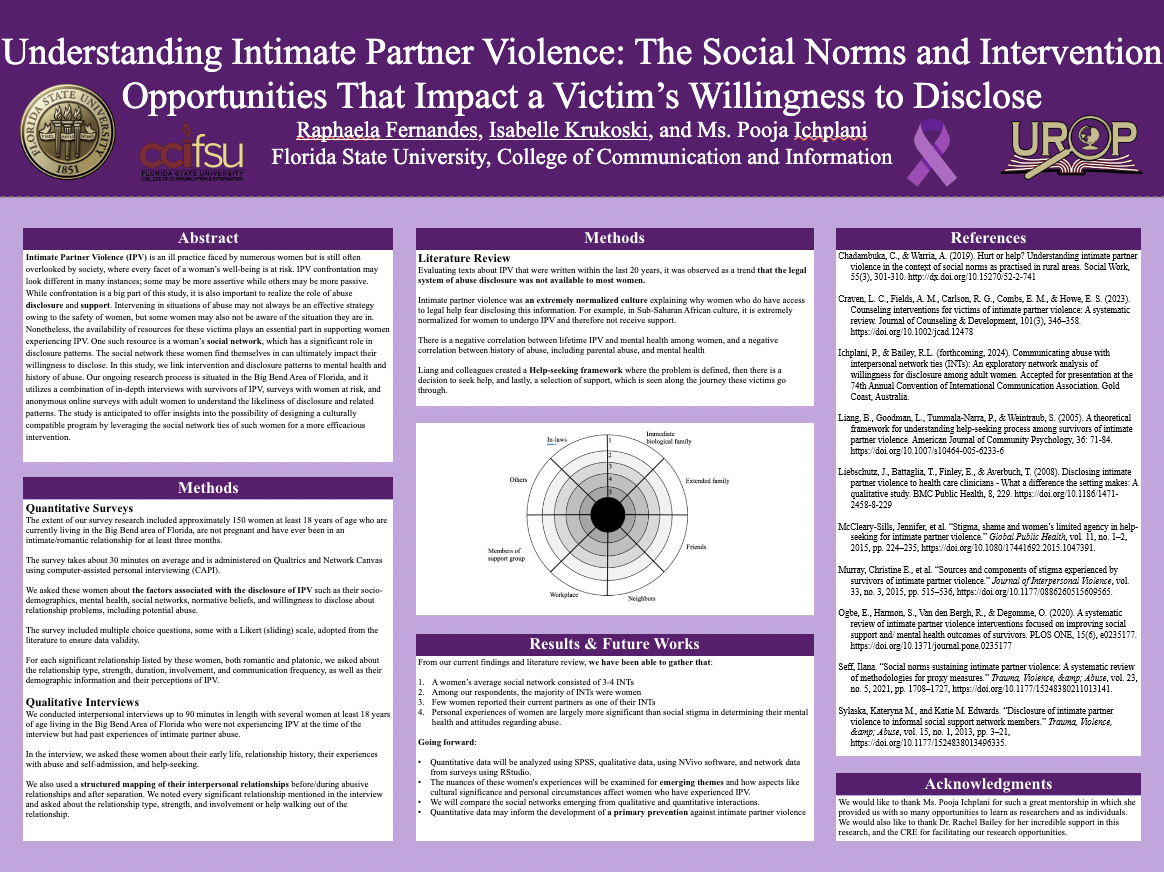Research Symposium
24th annual Undergraduate Research Symposium, April 3, 2024
Raphaela Fernandes Poster Session 2: 10:45 am - 11:45 am/206

BIO
My name is Raphaela I am a sophomore here at FSU. I am from Rio de Janeiro, Brazil, but moved to Orlando, Fl when I was 12 with my family. My research interests are mainly in the humanities area, especially dealing with social problems and injustices. After completing my undergraduate career here at FSU I hope to attend law school to become an attorney and keep pursuing legal research and help people as much as I can.
Understanding Intimate Partner Violence: The Social Norms and Intervention Opportunities That Impact a Victim's Willingness to Disclose
Authors: Raphaela Fernandes, Pooja IchplaniStudent Major: Political Science & English: Editing, Writing and Media
Mentor: Pooja Ichplani
Mentor's Department: College of Communication and Information Mentor's College: College of Communications and Information Co-Presenters: Isabelle Krukoski
Abstract
Intimate Partner Violence (IPV) is an ill practice faced by numerous women but is still often overlooked by society, where every facet of a woman’s well-being is at risk. IPV confrontation may look different in many instances; some may be more assertive while others may be more passive. While confrontation is a big part of this study, it is also important to realize the role of abuse disclosure and support. Intervening in situations of abuse may not always be an effective strategy owing to the safety of women, but some women may also not be aware of the situation they are in. Nonetheless, the availability of resources for these victims plays an essential part in supporting women experiencing IPV. One such resource is a woman’s social network, which has a significant role in disclosure patterns. The social network these women find themselves in can ultimately impact their willingness to disclose. In this study, we link intervention and disclosure patterns to mental health and history of abuse. Our ongoing research process is situated in the Big Bend Area of Florida, and it utilizes a combination of in-depth interviews with survivors of IPV, surveys with women at risk, and anonymous online surveys with adult women to understand the likeliness of disclosure and related patterns. The study is anticipated to offer insights into the possibility of designing a culturally compatible program by leveraging the social network ties of such women for a more efficacious intervention.
Keywords: Intimate Partner Violence (IPV), Disclosure, Support, Social Network

